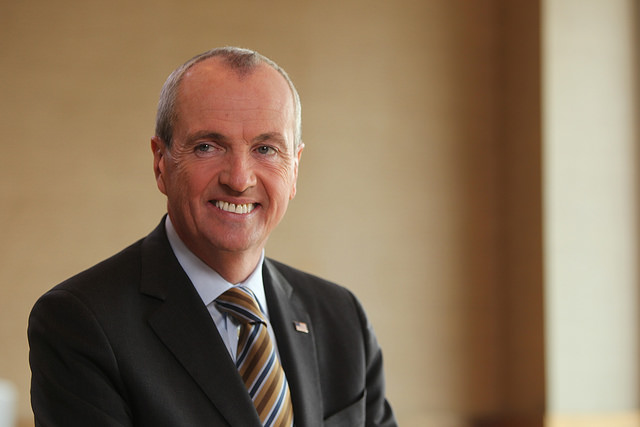Europe saw big developments on the cannabis front all year. This includes country-by-country developments that include legalization of medical use and even plans to begin domestic production, no matter how delayed such plans have turned out to be.
By far the most interesting market developments were in Germany all year. The Teutonic state has entered some interesting territory – even if its potential is still in the development rather than rollout status.
Elsewhere, however, medical acceptance is clearly starting to bloom across the continent in a way that is more reminiscent of American state development than what is about to happen in Canada.
One of the most interesting aspects of European reform however, that is in marked difference to what has happened in the U.S., is that grow facilities are being slowly established with federal authorization, even before further reform comes (see Turkey, Slovenia, Germany and even Denmark).
How reform will continue to roll out and shape the discussion however, is still a matter very much left up to individual European states. Cannabis legalization may become the first uniting issue of the new Deutsch ruling parliamentary coalition, whatever that is. In Spain, the cannabis question might yet be a play in simmering separatist tensions. Across the continent, legislatures are, for the first time in two generations, reconsidering what cannabis is, how it should be used, and what the penalties should be for those who use the drug either medicinally or recreationally.
Change is still all over the map. And it is still very, very slow.
Germany
The country’s federal legislators voted unanimously to mandate medical coverage of cannabis under public health insurance (which covers 90% of the population) on January 19th. Since then, however, forward movement has been stymied by a combination of forces and politics. While the legislation became law in March and the government established a cannabis agency, other developments have not been so clear cut. Yes, import licenses are being issued. And yes, there is a pending tender bid. However announcements of the finalists have been delayed since August due to lawsuits over qualifications of the growers, among other things. The new German government (whatever it will be) plus apparent CETA (EU-Canada Comprehensive Economic and Trade Agreement)-related complications have all added to the drama. That said, when the cannabis opera moves into its next act, as of probably early next year, expect to see domestic medical grow go forward. Importing medical supplies, even from across the continent (which is what is happening now) is ludicrously expensive. Rumours are already flying out of Berlin that further cannabis reform is one of the few things that all parties can agree to as a new government forms.
Holland
Sadly, the biggest cannabis-related “development” this year was the decision by all major health insurers to stop covering the drug, just as the German government changed its mind about the issue. Greater regulation of coffee shop grows coupled with this lack of insurance coverage means that patients are being forced into a coffee shop culture which is also commoditizing and commercializing into a high-volume affair, particularly in Amsterdam. While this might just be the new face of an old business, the laid back “coffee shop” culture of yore is an endangered species.

Photo: Bert Kaufmann
Spain
Catalonian independence made headlines globally this year. So did the associated bid for other freedoms of a cannabis sort – particularly in Barcelona. Club grows were set to become more regulated as of this summer. However the massive Catalonian bid for independence has further muddied the waters. Given the fact that cannabis reform appears to be at the forefront of finding political compromise elsewhere in Germany, perhaps givebacks about taxes for this industry might be one way to temper down the still-raging separatist forces afoot.
Poland
The Polish government surprised everyone this fall, and legalized the drug for medical purposes (at least in theory) in November. What this actually means for patients is another story. There are no plans to cultivate on the radar. Patients under the new law are allowed to travel to other countries to seek their medical cannabis. How they might afford it is another question. Not to mention how they will escape prosecution from personal importation if checked at a border.

Image: Nikos Roussos, Flickr
Polish pharmacists will however be trained on how to make medicaments from imported cannabis. They will have to be registered with the Office for the Registration of Medical Products. This means that pharmacists must be pre-registered with the government – in a move much like the early days of the Israeli medical program. The medicine is expected to cost about $460 a month. How well this will work in serving the country’s more than 300,000 already eligible patients is another story.
Greece
Cannabis economists have long said that what the Greeks really need to heal their economy is a vibrant cannabis injection. And as of mid-November early investors in the nascent market had already staked close to $2 billion in cultivation opportunities. Senior ministers in the government have also publicly backed plans to move Greece into a strategic position to claim a piece of a global cannabis market estimated to reach 200 billion dollars a year by the end of the next decade. It means jobs. It means capital infusions. Exactly, in other words, what the Greek economy desperately needs. Expect to see further formalization of the grow program here in 2018 for sure.
Lithuania
It appears that quite a few countries in Europe are pushing for real cannabis reform by the end of the year, and this little EU country is joining the list. With a unanimous agreement in Parliament already to change the country’s drug policy, Lithuania’s legislators could vote to legalize the drug on December 12th of this year. All signs look promising.
Slovenia
MCG, an Australian-based company, made news in the fall by announcing a new cannabinoid extraction facility in the country, on track for completion this year. The company also ramped up domestic production operations in August. Real reform here still has a long way to go. However with domestic production underway, greater medical use looks promising.
Denmark
The country signed a production agreement to open a new facility in Odense, the country’s third largest city with Spektrum Cannabis, the medical brand of one of the largest Canadian producers (Canopy Cannabis) now seeking a foothold in Europe late this fall. What this means for ongoing reform in Denmark is also positive. The company will import cannabis via Spektrum Denmark until all the necessary approvals are ironed out for cultivation.
Portugal
While “reform” here is less of an issue than it is elsewhere (since all drugs are decriminalized), Portugal might yet play an interesting role in cross-European legalization. Tilray, another large Canadian-American firm with interests in Europe, announced the construction of a large medical cannabis facility in the country earlier this year. That plant could easily ship medical supplies across Europe as new countries legalize but do not implement grow facilities.































